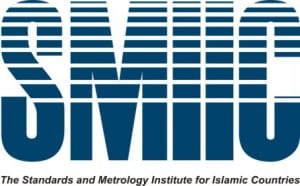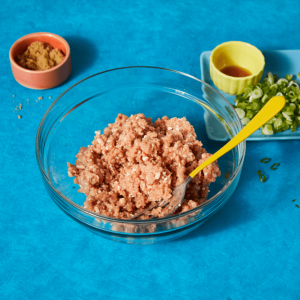Sharmila Devi, Foreign Correspondent
Attendance at the American Muslim Consumer Conference in New Jersey crossed racial and ethnic lines. Les Stone for The National
PISCATAWAY,
NEW JERSEY // Getting corporate America to recognise the purchasing
power of Muslims, rather than running scared because of stereotypes,
was difficult but not impossible, said Michael Hastings-Black, the
co-founder of the Desedo Advertising Agency, which specialises in
minority markets.
Addressing more than 200 delegates at the
American Muslim Consumer Conference recently, he recounted a tale
illustrating the high passions generated by a television advert last
year by Dunkin’ Donuts, which did not even specifically address Muslims.
The commercial was pulled after viewers complained about an item of
clothing that the non-Muslim celebrity chef, Rachel Ray, happened to
wear – the keffiyah.
In the eyes of the complainers, the
headscarf was a terrorist symbol. The controversy “caused big brands to
pause” already meagre attempts to include or address Muslims in any
marketing campaigns, Mr Hastings-Black said.
But, he said,
large corporations as well as niche Muslim companies now have new
opportunities to tap into the estimated US$170 billion (Dh624bn)
American Muslim market through social media. Such websites as Facebook
and YouTube, plus blogs and instant messaging provided valuable means
of communicating directly with the large and diverse US Muslim
community, which also had the chance to create and define its own
identity, he said.
“To shop is to be American,” he said. But marketing campaigns along with Hollywood movies often perpetuate stereotypes.
“New media allows a more accurate depiction of minorities. Dialogue is supplanting monologue.”
The
American Muslim Consumer Conference, held at a conference hall at
Rutgers University in New Jersey, was billed as the first of its kind
by its volunteer organisers, a group of US Muslim professionals. Their
aim was to educate non-Muslim businesses about the demand for Islamic
products and encourage Muslims to exert their market power.
“Muslims want to be acknowledged in
mainstream media. You don’t need to change your product or show Muslims
in your ads,” said Mohammed Abdullah, the conference’s director.
“Instead, consider advertising in a Muslim media outlet. Say ‘Eid
Mubarak’ or ‘Ramadan Kareem’ during the holidays. The Muslim community
will respond. When we see an ad we like, we send it to our friends and
share it with each other.”
Mr Mohammed is a 28-year-old assistant vice president at Deutsche
Bank and was born in India. A couple of years ago, he was going home by
train to New Jersey from an Arabic class when a passenger noticed his
books and said “Salam Alaikum”. He soon developed a friendship with the
passenger, Faisal Masood, founder of MuslimLink.org, a social media
platform that connects Muslim professionals, businesses and
organisations.
The men joined forces with several others to organise the consumer
conference, which they hope will be annual. Mr Abdullah said he was
gratified by the positive response to the conference, which was
attended by company executives, entrepreneurs, analysts and
journalists, of whom 75 per cent were Muslim.
The potential for
growth within the halal and Islamic finance sectors were discussed at
length as was analysis of the US Muslim consumer market and strategies
to reach it.
Mr Hastings-Black pointed out that many purchasing decisions made by
Muslims have nothing to do with religion, such as buying a television.
There was also no single profile of a US Muslim as evidenced by
conference attendees, who included all races and ethnicities. “You can
even be Muslim and a skateboarder,” he said.
But the lack of
accurate data about the size of the community continued to deter many
companies and advertisers. Numbers range between two million and seven
million. Polling companies underestimate the total because they are
dependent on telephone surveys, and community and mosque leaders often
exaggerate their figures to win influence. Several speakers said they
preferred to use a mid-range figure of around three million to four
million Muslims in the United States.
One speaker was Monem Salam, the president of Saturna Brokerage
Services, which manages mutual funds aimed at US-based Islamic
investors. He did not see any big impediments to the growth of Islamic
finance in the country, shrugging off a lawsuit filed last year by a
Christian group that challenged the government’s bailout of the
American International Group because the insurer offered
Sharia-compliant financial products. “We’re seeing a change in the
psyche of the American Muslim consumer,” he said. “When there were no
products out there in the 1970s, scholars said to use regular products.
My parents had a conventional mortgage. That’s changing and the second
generation is demanding more.”
Syed Rasheeduddin Ahmed is the founder of the Muslim Consumer Group,
which provides listings of food products according to whether they are
halal (allowed), haram (forbidden) or mushbooh (questionable).
He
said educating US food companies was a slow process because many equate
halal with kosher though the regimes have differences; for example,
alcohol is not banned under Jewish law. “Companies don’t want to pay
extra for the [Islamic] certification.”
He urged consumers to call companies to request information and new products without pork or alcohol, for example.
About
30 per cent of kosher food in the United States is bought by Muslims
and the kosher industry was held up as an important model because it
encompassed dietary laws with high-quality and socially conscious
products that appealed to people of all faiths.
The conference
was further proof of greater unity within the US Muslim community, said
Tayyibah Taylor, the founder and publisher of Azizah magazine, which is
aimed at Muslim women but is read by women of all faiths who dislike
the values promulgated by mainstream women’s publications.
Ms Taylor, who is African-American, said Muslims drew closer to each other in the aftermath of the September 11 attacks.
“Those
Muslims flying under the cultural radar and who thought they were
‘white’ woke up to the African-American experience,” she said.
Mr Abdullah said some British attendees told him they hoped to replicate the conference in the UK.



